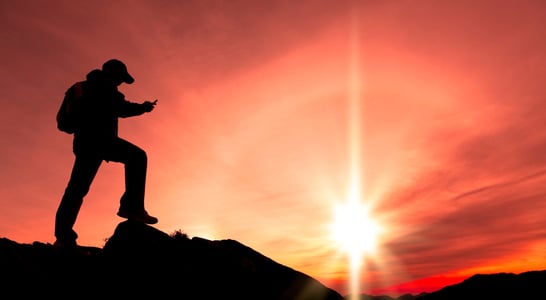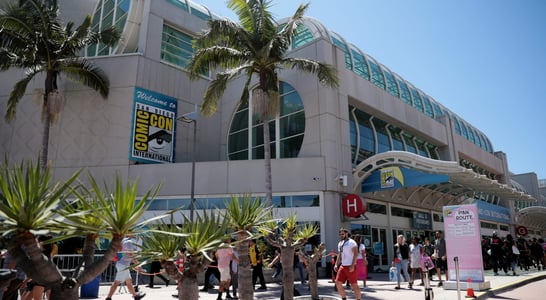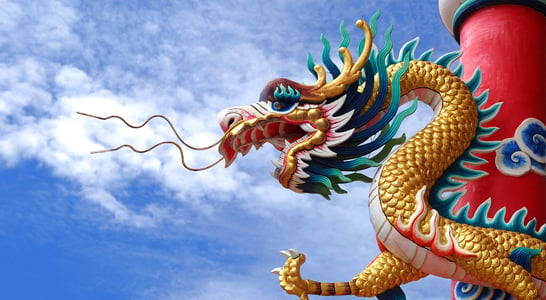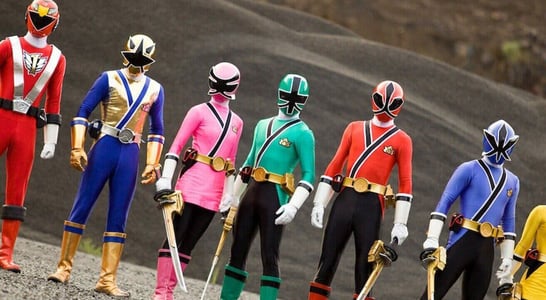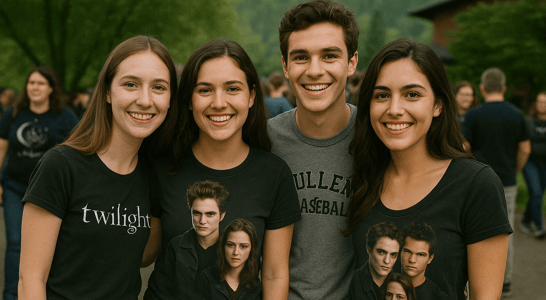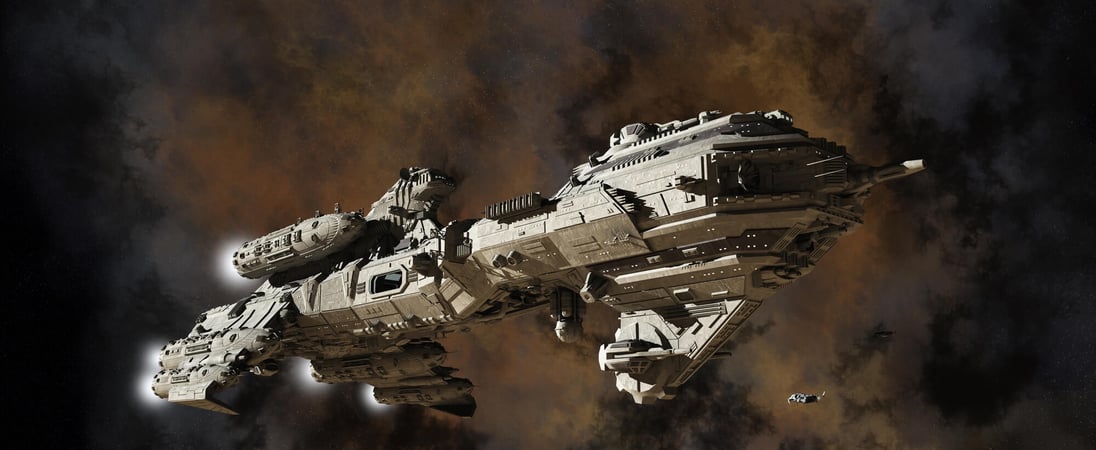
National Science Fiction Day
Get ready to explore galaxies and dimensions beyond your wildest dreams with stories that push the boundaries of what's possible!
No one is going to place any blame for those people who may have never heard about National Science Fiction Day!
It’s common in some circles but virtually unknown in others. Reading science fiction books, watching Sci-Fi films, dressing up as a favorite superhero and perhaps even taking part in Comic-Con may not be for everyone.
But, as it turns out, in the last few years National Science Fiction Day has become a very popular and unique event that marks the calendar of every true and dedicated fan of science fiction.
Although it’s not an official holiday of any sort (meaning that it is not recognized or declared by any government), National Science Fiction Day is given some degree of credence through its recognition by organizations such as the Hallmark Channel as well as the Scholastic Corporation.
National Science Fiction Day has expanded not only across the United States, but has also made its way across different parts of the world.
Now it’s time to learn about and prepare to celebrate National Science Fiction Day!
History of National Science Fiction Day
National Science Fiction Day is celebrated on this date very early in the year for a good reason. This date was chosen in order to correspond with the official birth date of famed science fiction writer Isaac Asimov, who is thought to have been born January 2nd, 1920.
Mr. Asimov is responsible for some incredible works of science fiction literature during his lifetime, such as Nightfall and the Foundation Trilogy.
Isaac Asimov, originally a biochemist, was known to be one of the most prolific writers of all time, having written or edited more than 500 books.
He is widely considered a master of hard science fiction and was a long-time member and vice president of Mensa International. His dedication to scientific accuracy was to be envied.
Asimov was responsible for a variety of terms related to National Science Fiction Day. He coined the term “robotics” in his 1941 story Liar!. In addition, he also came up with the term “spome” in a paper titled, There’s No Place Like Spome which was published in Atmosphere in Space Cabins and Closed Environments.
Eventually the term “psychohistory” was created in his foundation stories to name a fictional branch of science which combines history, sociology, and mathematical statistics to make general predictions about the future behavior of very large groups of people.
Isaac Asimov was an atheist as well as a humanist and a rationalist. He did not actually oppose the religious convictions that others had, but he was frequently angered by superstitious and pseudoscientific beliefs that tried to pass themselves off as genuine science.
How to Celebrate National Science Fiction Day
Celebrating National Science Fiction Day can be a delightful way to have fun, to learn and to use the imagination.
Weather celebrating on your own or getting some friends and family together, here are some ideas to get started on ways of celebrating this day:
Read Famous Works of Science Fiction
While Asimov was one of the most prominent science fiction writers of the last century, fans usually like to show their appreciation to National Science Fiction Day by reading books from a whole variety of authors.
A list of some of these interesting authors might include:
- Jules Verne
Born in the mid-1800s, Verne was a French novelist and playwright, and his work made a huge impact on Europe especially as it has to do with science fiction. He is most well known for his books Twenty Thousand Leagues Under The Sea (1870) and Around the World in Eighty Days (1873). - H.G. Wells
This famous author lived from the mid-1800s to the mid-1900s and his unforgettable science fiction has been made into radio shows and modern movies, such as War of the Worlds (1898) and The Time Machine (1895). - Ray Bradbury
A well known 20th century author, Bradbury wrote masterpiece novels that inspired a variety of sci-fi writers and creators that would come after him. He wrote Fahrenheit 451 (1953) and The Martian Chronicles (1950). - Kurt Vonnegut
This creative postmodern writer was a science fiction creative whose works were also hailed as strong works in the literary category as well. His books include titles such as Player Piano (1952) and Slaughterhouse Five (1959).
Watch Some Science Fiction Movies
For those who are less inclined to reading but still want to celebrate the day, a great way to enjoy National Science Fiction Day is by having a movie marathon.
Grab a few friends and some snacks, or go it on your own. Whichever film is chosen, purely classic or distinctly modern, it’s sure to pay homage to National Science Fiction Day.Some of these are even parts of a series of films that could be binge-watched in honor of the day:
- Alien (1979) by Ridley Scott
One of the most famous works of sci-fi horror cinema of all time, Alien is about how “in space, no one can hear you scream” and how a close encounter of the third kind becomes a Jaws-style nightmare when an alien invades a spacecraft. Sigourney Weaver and Tom Skerritt star in this film that went on to have five more in the series over the next 30 years, as well as a variety of spinoffs. - 2001: A Space Odyssey (1968) by Stanley Kubrick
In cooperation with Arthur C. Clarke, Kubrick wrote the story about a sentient computer, HAL, and a voyage to the planet Jupiter. This story is especially well known for its scientific accuracy related to space travel. - The Hitchhiker’s Guide to the Galaxy (2005) by Garth Jennings
What would happen if someone discovered that their friend was actually an alien sent to earth to write a universal guidebook just before the planet is destroyed? That’s the premise of this book. Mere seconds before the Earth is to be demolished by an alien construction crew, journeyman Arthur Dent is swept off the planet by his friend Ford Prefect, a researcher penning a new edition of “The Hitchhiker’s Guide to the Galaxy.” - Blade Runner (1982) by Ridley Scott
Another fan favorite, this film is based on the novel by Philip K. Dick, Do Androids Dream of Electric Sheep? Harrison Ford plays a space cop who comes to terms with his own understanding of what it means to be human. Blade Runner 2049 is a sequel starring Ryan Gosling and Harrison Ford that was made in 2017.
Listen to Science Fiction Themed Music
Throw on some CDs from sci-fi movie soundtracks to get the vibe going. Or, create a playlist on Spotify, Pandora or another favorite music hosting platform. Here are a few songs to get started with that National Science Fiction Playlist:
- You’re Full of Stars by Max Richter (2021)
This song from “Invasion” is perfect for space travel themed films and books. - Ripples in the Sand by Hans Zimmer (2021)
From the modern remake of the 1965 film “Dune”, this song was made using newly created hybrid instruments to give the music an other-worldly sound, relying especially heavily on percussion, strings and celestial female voices. - Almost Human by Lauren Daigle (2017)
The soundtrack from sequel Blade Runner 2049 features this soulful piece. The song also gives a little nod to the 2013 Fox television sci-fi series of the same name. - Ultimatum by Johann Johannsson (2016)
An ethereal piece that provides suspense and drama as the listener imagines the tension from the film Arrival which stars Amy Adams and Jeremy Renner.
Throw a Science Fiction Theme Party
Get those friends and family members who are sci-fi fans together and host a gathering that honors all things related to National Science Fiction Day. Decorate with space themed items, play some of the music mentioned above, and be sure to have guests dress up as their favorite science fiction character.
A super fun part of a Science Fiction Party is creating a menu around the theme. Get started with some of these ideas for snacks, drinks and desserts:
- Captain Nemo
This drink pays heed to Jules Verne’s Nautilus captain from 20,000 leagues under the sea. It is made using fresh lemon juice, guava and raspberry puree, Ting (a Jamaican soft drink flavored with grapefruit juice) and Clement sirop de canne (a spiced sugar cane syrup. - Noodle Bar
Giving a nod to the Blade Runner film (mentioned above), noodles have been eaten in several space films and shows over the years, including Almost Human, Battlestar Galactica, Cowboy Bebop, Prometheus and The Fifth Element. - Gingerbread Wookiee Cookies
Everyone’s favorite Wookiee, Chewbacca, is featured here by simply altering a gingerbread cookie form slightly. Make some marks on the pre-baked cookie dough to symbolize the fur. Then, once the cookies are baked, use a piping bag to make an icing face and bandolier. - Alien Themed Snacks
A variety of different types of treats can be turned into aliens or creatures from outer space. Try decorating cupcakes with green ice cream and just one eye in the middle. Or dye popcorn balls green, shape them into alien heads and create faces with black licorice cutouts.
National Science Fiction Day should be a time to stop and appreciate every author who has ever created a memorable character and even entire worlds. So, whichever author happens to be the favorite, be sure to pay some extra attention to them on that day!
National Science Fiction Day FAQs
Why was January 2 chosen as Science Fiction Day?
While January 2 honors Isaac Asimov’s birthday, the choice also reflects the post-holiday lull, where people can enjoy relaxing with a book or movie.
Asimov, a pioneer in science fiction, was pivotal during the genre’s Golden Age, influencing other writers like Arthur C. Clarke.
His January 2 birthday thus became symbolic of exploration and futurism, themes central to science fiction.
Did any historical events inspire early science fiction?
Yes! The Industrial Revolution heavily influenced early science fiction. Writers like Jules Verne imagined futuristic machines inspired by steam engines and railways.
The development of modern science fiction paralleled scientific breakthroughs, like the discovery of electricity, inspiring works that speculated on the marvels and dangers of technological progress.
Are there unique ways people celebrate Science Fiction Day worldwide?
In Japan, sci-fi fans often commemorate the day by attending themed cafes where waitstaff dress as popular characters.
In the U.S., some libraries host “alien escape rooms” for fans of all ages. These interactive events allow participants to solve puzzles while encountering extraterrestrial characters.
What are some lesser-known science fiction myths or misconceptions?
Many believe that science fiction is only about space adventures. However, the genre spans themes of social commentary, ethics in AI, and alternate history.
Early stories, like H.G. Wells’ The Time Machine, explore human nature, while modern tales often question reality itself, as seen in The Matrix.
How did the term ‘science fiction’ come about?
Although often credited to Hugo Gernsback, the term gained popularity in the 1920s as magazines like Amazing Stories began to publish “scientifiction,” a blend of scientific concepts and imaginative tales.
This new term helped differentiate stories focused on realistic science from fantastical ones.
What surprising role did radio play in the spread of science fiction?
In the 1930s, radio dramas brought science fiction to a broad audience, allowing fans to “experience” alien invasions or space travel.
Orson Welles’ infamous 1938 broadcast of The War of the Worlds even caused widespread panic, proving the genre’s power to captivate—and sometimes alarm.
Are there science fiction festivals beyond Comic-Con?
Absolutely! The U.K. hosts Sci-Fi-London, an annual festival featuring indie sci-fi films, VR demos, and even space-themed fashion shows. France’s Utopiales festival explores science fiction through art, literature, and live debates, drawing thousands of enthusiasts.
Did any scientific inventions originate from science fiction?
Yes! Some inventors were inspired by science fiction to create real-world tech.
The flip phone, for instance, was inspired by the communicators in Star Trek. NASA even credited Arthur C. Clarke’s novel 2001: A Space Odyssey with inspiring the development of advanced space technology.
Are there any superstitions about extraterrestrials tied to Science Fiction Day?
Interestingly, some fans celebrate by leaving food or small gifts outside to “welcome” any alien visitors.
This playful ritual emerged among UFO enthusiasts who treat the day as a “friendly gesture” to possible visitors from beyond.
How do museums honor Science Fiction Day?
Some science museums offer hands-on “future tech” exhibits or workshops where visitors can build mini-robots or explore space simulations.
For example, the Science Fiction Museum in Seattle has special events each January 2, featuring rare artifacts from sci-fi classics.
Also on ...
View all holidaysMotivation and Inspiration Day
Igniting that inner spark, pushing past limits, and turning dreams into reality - it's all about that relentless drive to conquer the world.
World Introvert Day
Recharge through some alone time and self-care, learn about the psychology of introversion or show appreciation for your inward-focused friends.
National Buffet Day
In the realm of dining, a vast spread awaits, a treasure trove of culinary delights where one can savor a multitude of flavors.
National Cream Puff Day
Light, airy delights with a delicate sweetness that melts in your mouth. Perfect for any occasion, from afternoon tea to a midnight snack.
We think you may also like...
National Appreciate A Dragon Day
These mythical creatures can fly, breathe fire, and hoard treasure. With their strength and majesty, they ignite the imagination and spark adventures.
